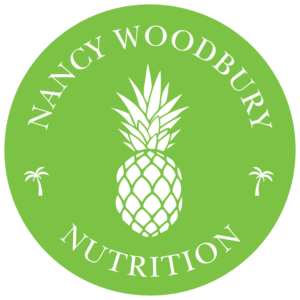February is American Heart Month—a perfect opportunity to raise awareness of cardiovascular disease (CVD), which includes coronary artery disease, stroke, hypertension, congestive heart failure and cardiac arrhythmias. Globally, CVD is the leading cause of death. Risk factors include obesity, physical inactivity, smoking, poor nutrition, cholesterol, high blood pressure and diabetes. Fortunately, you can reduce your risk of heart disease by eating a whole food, plant-based diet. Examine the evidence:
Research on plant-based diets and heart health
The EPIC-Oxford study of 15,000 vegetarians and 30,000 non-vegetarians found that vegetarians had a 32% lower risk of ischemic heart disease due to lower cholesterol and blood pressure levels at follow-up approximately 11 years later.
The Adventist Health Study-2 (AHS-2) is one of the largest (96,000 people) studies of nutrition and health in the predominantly vegetarian Adventist population. An AHS-2 sub-study of 500 people, 40% non-vegetarian, found that compared to non-vegetarians, both the vegans and lacto-ovo vegetarians had lower blood pressure due to higher intakes of fiber and potassium from fruits, vegetables, nuts and whole grains.
Caldwell Esselstyn MD led a Cleveland Clinic study of 198 CVD patients who received counseling on plant-based nutrition (no dairy, fish, meat, oil, nuts or avocados) to reverse heart disease. After three years, 89% of the participants had adhered to the program and less than 1% of them experienced cardiac complications. Of the 11% of participants who did not adhere to a plant-based diet, 62% suffered serious cardiovascular complications including death.
Recent studies have revealed an emerging risk factor for CVD: Trimethylamine N-oxide (TMAO), a substance that promotes plaque in the arteries. When omnivores eat L-carnitine in meat and lecithin in eggs, their gut bacteria feeds on them to produce a substance that the liver ultimately converts to TMAO. In these studies, when vegans were fed L-carnitine or lecithin supplements, they lacked the gut bacteria responsible for the creation of TMAO, thus reducing their risk for heart disease.
Despite what you may have read in the mainstream news media about eggs and butter being “back” and safe to consume, the American Heart Association still advises people to limit intake of saturated fat to less than 6% of daily calories and to limit dietary cholesterol to less than 200 mg daily. Most plant foods are low in saturated fat, except for tropical oils and coconut. Foods high in soluble fiber such as beans and oatmeal are effective in lowering cholesterol. Plant compounds called sterols and stanols also have a cholesterol-lowering effect.
Acute inflammation is a normal and healthy immune response that promotes healing. When an injury or infection is prolonged, the result is a chronic state of inflammation, which has been associated with many chronic diseases including CVD. Both saturated fat and trans-fats, refined carbohydrates, and a high ratio of omega-6 to omega-3 fatty acids in the diet promote inflammation. Research has shown that a whole food diet rich in antioxidants and phytochemicals in fruits, vegetables, whole grains, nuts and seeds may reduce inflammation.

